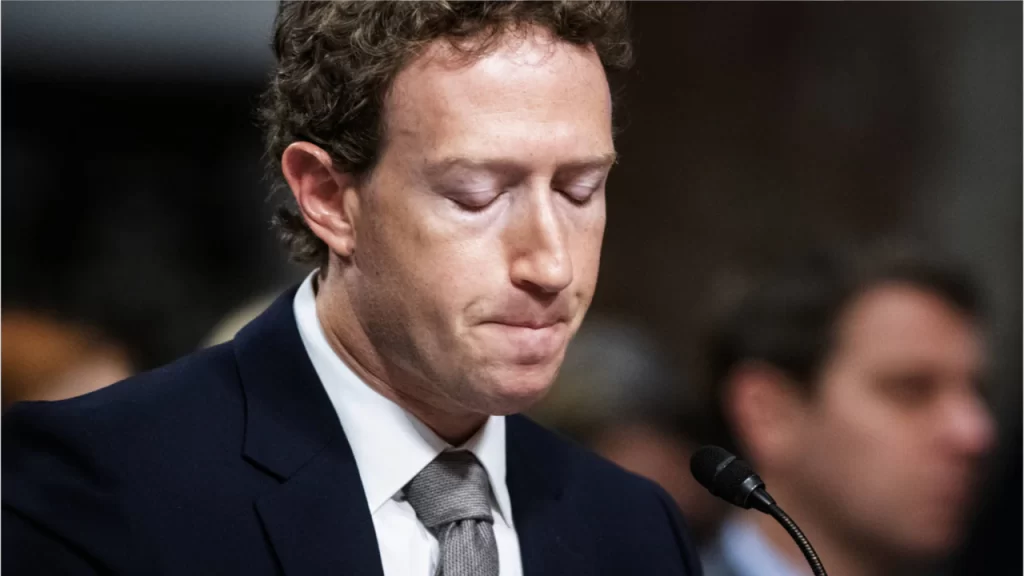Zuckerberg regrets bowing to Biden ‘pressure’ over Covid
3 min read

Mark Zuckerberg, the CEO of Meta, has publicly expressed regret for complying with what he describes as pressure from the Biden administration to censor content on Facebook and Instagram during the Covid-19 pandemic. In a letter to Jim Jordan, the chair of the House Judiciary Committee, Zuckerberg detailed how senior officials, including members of the White House, exerted pressure on Meta to remove or limit certain types of content in 2021.
Zuckerberg’s letter highlights that this pressure was exerted over several months, particularly targeting Covid-19 related content, including posts that were humorous or satirical in nature. Reflecting on these actions, Zuckerberg admitted that the decisions made in response to this pressure were ones he would not make with the benefit of hindsight. He stated, “I believe the government pressure was wrong, and I regret that we were not more outspoken about it.” He also mentioned that Meta would be prepared to resist similar pressures in the future.
The White House has defended its actions, emphasizing that its aim was to encourage “responsible actions to protect public health and safety.” The administration maintains that tech companies should independently assess the impact of their content moderation practices on public welfare, but still make decisions based on their own judgment.
Zuckerberg also addressed another contentious issue: the handling of content related to Hunter Biden, the son of President Joe Biden. Ahead of the 2020 election, Meta briefly demoted content about Hunter Biden’s laptop after the FBI warned of a potential Russian disinformation campaign. Zuckerberg later clarified that the content was not part of such an operation, and acknowledged that the decision to demote it was a mistake. “In retrospect, we shouldn’t have demoted the story,” he said, adding that Meta has since updated its policies to prevent similar situations in the future.
The controversy surrounding Hunter Biden’s laptop, initially reported by the New York Post, claimed that emails on the laptop indicated potential conflicts of interest involving Biden’s business dealings abroad. This story became a significant point of contention and was heavily scrutinized on social media platforms, some of which chose to limit its visibility. Zuckerberg admitted that Meta’s handling of the situation did not align with its current policies, and he stressed that changes have been made to avoid repeating such errors.
In addition, Zuckerberg touched on his past philanthropic contributions to electoral infrastructure. In 2020, he donated $400 million through the Chan Zuckerberg Initiative to help election offices manage the challenges posed by the pandemic. However, this donation sparked accusations of attempting to circumvent donation limits to benefit one political party. Despite analyses indicating that the contributions were non-partisan, Zuckerberg faced criticism and claims that the funding inadvertently supported one side of the political spectrum.
To address these concerns, Zuckerberg announced that he does not plan to make similar contributions in the upcoming election cycle. He reiterated his commitment to remaining neutral and ensuring that his actions are not perceived as favoring one political side over another. “My goal is to be neutral and not play a role one way or another—or even appear to be playing a role,” he emphasized.
Zuckerberg’s recent statements and the letter to Congress have been described by some Republicans as a victory for free speech, reflecting ongoing debates over the role of tech companies in moderating content and the influence of government pressure on these decisions. As Meta continues to navigate these complex issues, Zuckerberg’s reflections mark a significant moment in the ongoing dialogue about content moderation and political influence in the digital age.